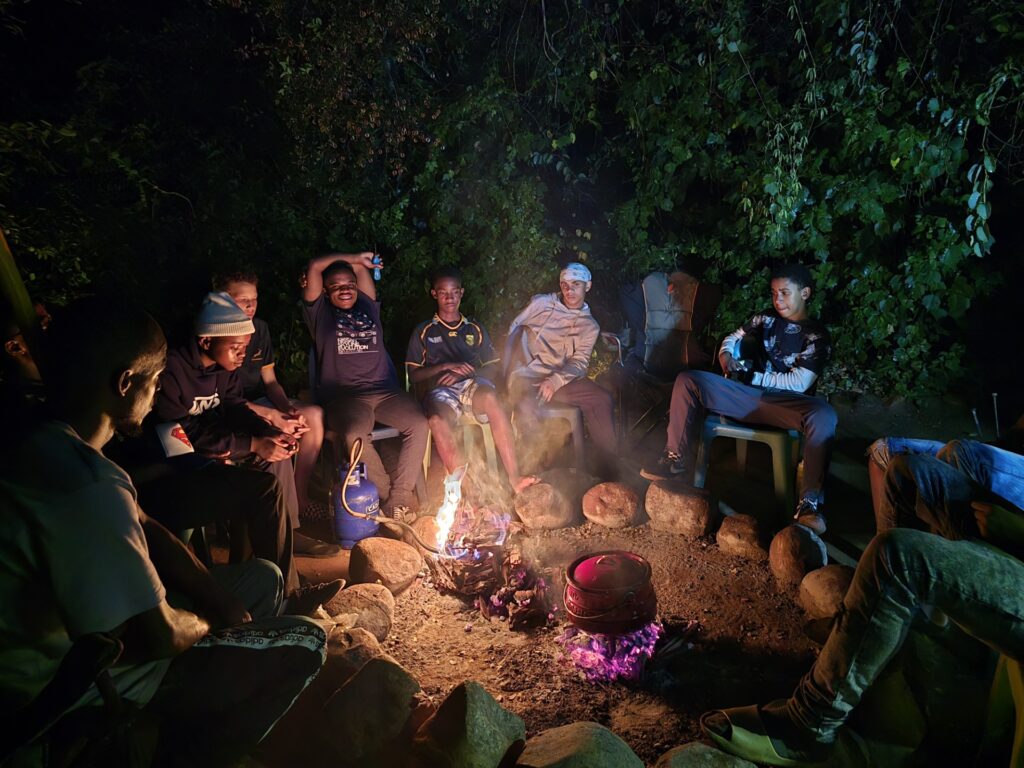From a young age, many South African boys learn that expressing vulnerability puts them at risk of shame, rejection, or even bullying and physical violence. Across the country’s diverse communities, patriarchal norms and assumptions still dominate. While gender equity efforts bring the harm this does to women and girls into the spotlight, the many ways that the patriarchy also hurts boys and men is so often lost in the shadows. One of the biggest harms to our boys comes from seemingly innocuous social conditioning encapsulated in the “boys don’t cry” mantra.

Media, parents, teachers, role models, peers and other community members may all be involved in perpetuating traditional gender norms that disadvantage South African boys when it comes to their emotional well-being and the proper development of their emotional and social intelligences. The International Day of the Boy Child is celebrated on 16 May 2025, and brings attention to the importance of boys’ well-being and the challenges they face.
Jaco van Schalkwyk, Founder of The Character Company (TCC), a non-profit organisation working with boys with absent fathers, says, “After working closely, for around thirteen years, with hundreds of boys and men, what stands out for me is a lack of fundamental competencies on how to identify and deal with our emotions. This is an issue for boys and men that is being compounded, generation after generation.
“There’s a longstanding lack of emotional literacy passed from father to son – not just the lack of safe spaces, but the scarcity of words to express challenging emotions. Playing out in today’s context, men are silent because they have become tentative about not just celebrating masculinity but speaking about it. There’s confusion about what is acceptable when it comes to modern masculinity and men are, perhaps not stepping up enough to help boys, because we are unsure of what to do or say ourselves when it comes to being accepted as a good man in society.”
‘Big boys don’t cry’ can have unintended consequences
Every year, since 2019, multiple researchers and official reports have concluded that male South Africans are four to five times more likely to die by suicide than their female counterparts. Rates of depression, anxiety and social isolation are soaring amongst South African youth. Discouraging men and boys from expressing normal human emotions and seeking help for mental health challenges only increases the risks of destructive behaviours such as substance disorders and gender-based violence.
Jaco says, “Pressures from all corners of society, traditional and contemporary, mean that men are not doing enough to teach boys about the fundamentals of vulnerability. And, vulnerability is scary, because we fear that being vulnerable will hurt us particularly as males. Where are the men creating safe spaces for our boys to be vulnerable and to grapple with challenging feelings? It’s rare, like in the TCC programme, instead of being widespread in our homes and schools and communities.”
What happens when there are too few safe spaces for boys?
For our young boys, this means existing in a world where the men who are supposed to model healthy masculinity for them and guide deep conversations with them are not there. Not always because they are unwilling but sometimes because they don’t know how to deal with emotion and vulnerability themselves and feel insecure because they don’t have the answers.

Jaco points out: “We are talking about a crisis with boys, but too many men don’t have experience in surrounding themselves with other men in safe spaces where they can have these critical, vulnerable conversations about masculinity and the modern challenges. We see this play out in the TCC programme, where our volunteer mentors are themselves going through immense personal learning as they guide our boys through our values-based curriculum. It’s one of the reasons that becoming a TCC mentor is so fulfilling.
“Men need to learn that maybe you don’t have all the answers, because who does? What we do know is that confronting vulnerabilities signals courage not weakness. That alone, gives men a significant capacity to bravely hold a safe space for boys who undeniably deserve our support as they navigate a world that has become much more complicated and scarier for boys and men.”




























